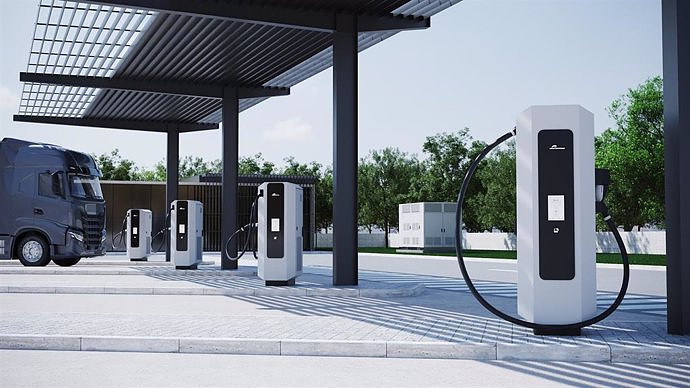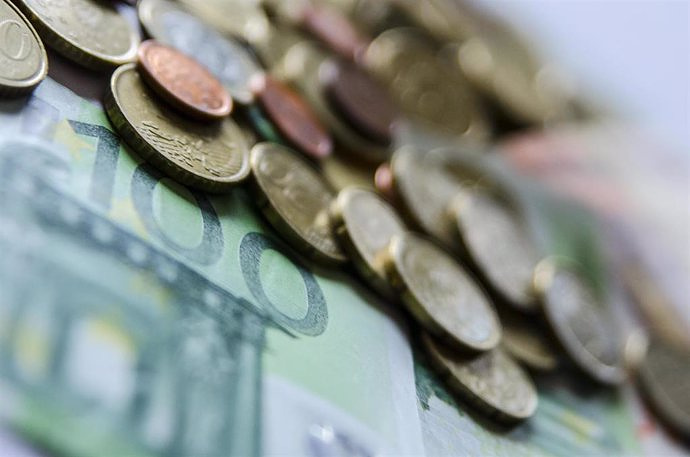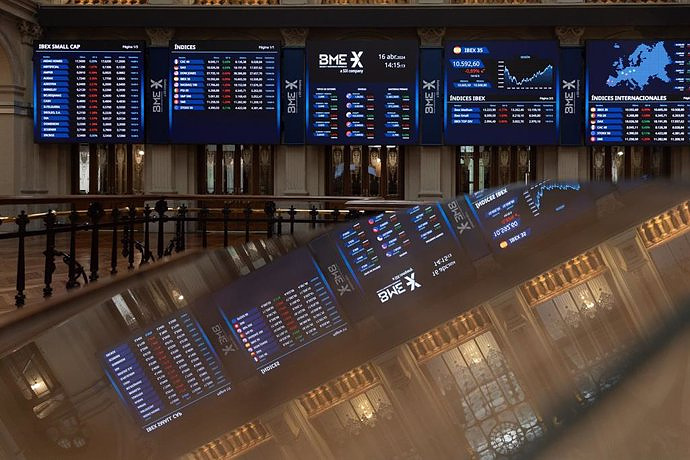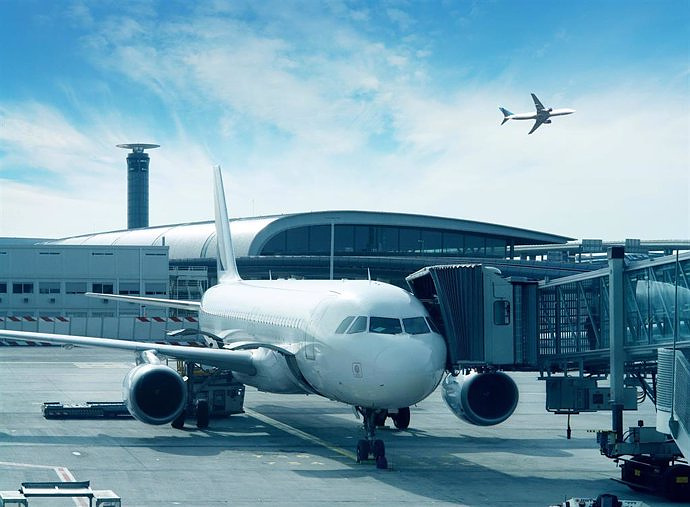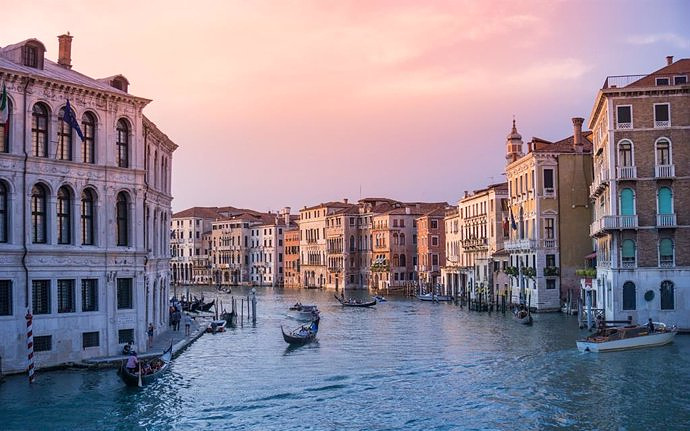Both propose different projects and that, according to an expert, would be "unfeasible"
MADRID, 13 Nov. (EUROPA PRESS) -
The rivalry between Morocco and Algeria has found a new battlefield, the energy one. The two countries are immersed in a campaign to promote conflicting projects for the construction of a future gas pipeline that, via their respective territories, will allow gas to be transported from Nigeria to Europe, at a time when European countries are looking for alternative supplies to Russia. However, experts do not believe they are viable.
Rabat and Algeria broke off relations in the summer of 2021 and since then their respective diplomacies have been immersed in hard work to win supporters for their cause, with Western Sahara as the main battle horse but not the only one.
Precisely, the recent speech by Mohamed VI on the occasion of the anniversary of the Green March has once again put another point of friction on the table: the construction of a gas pipeline to transport gas from Nigeria, the country that has the largest reserves in Africa , towards Europe.
Algeria was the first to raise the idea of the Trans-Saharan Gas Pipeline (TSGP) decades ago, but it was not until the early 2000s that the project gained momentum, with the signing of a memorandum of understanding between the state oil companies - the Algerian Sonatrach and the Nigerian NNPC--. The plan is to build a gas pipeline from the fields in Nigeria, through Niger to Algeria, from where it would be sent through the gas pipelines that already link the country with Europe.
Morocco, for its part, jumped on the bandwagon in 2016, when during a visit by Mohamed VI to Lagos, together with the Nigerian president, Muhamadu Buhari, he announced the Nigeria-Morocco Gas Pipeline (NMGP). The project promoted by Rabat would also be responsible for transporting Nigerian gas but in its case through a dozen West African countries.
Both projects have, a priori, some advantages and disadvantages. In terms of cost, the Algerian option is cheaper, around 13,000 million euros, while the Moroccan option shoots up to 25,000 million, given its greater length.
However, the Rabat proposal, since a good part of the route runs 'offshore', is considered to be safer, while the Algiers proposal would have to cross the north of Nigeria as well as Niger, both of which are places of jihadist violence, and also the terrestrial infrastructures are more susceptible to being sabotage.
Logically, for each country their bet is the best, hence the firm campaign they are making to vindicate themselves. "The project is very profitable," Abdelmayid Attar, former Minister of Energy and former president of Sonatrach, assured Middle East Eye a few weeks ago. Since the "political will" exists, the only thing missing is the funds to undertake the project, he maintained.
For his part, Mohamed VI made express mention of the NMGP in his speech for the anniversary of the Green March, celebrating the recent memoranda of understanding signed with the Economic Community of West African States (ECOWAS), as well as with Mauritania and Senegal, to join it.
The Alaouite monarch maintained that this gas pipeline "goes beyond being a bilateral project" between Morocco and Nigeria and what Rabat wants is for it "to be a strategic project at the service of the entire West African region" for the sake of "peace, African economic integration and shared development".
However, in the opinion of Gonzalo Escribano, a researcher at Elcano and an expert in energy policy, there is nothing behind both initiatives other than what is called "gas pipeline geopolitics", since both projects "are unfeasible".
In the opinion of this expert, the construction of gas pipelines of more than 1,500 kilometers does not make much sense since it is cheaper to buy Liquefied Natural Gas (LNG) and transport it by ship. Furthermore, in both cases, it is hard for him to think that "no bank is going to finance it" and much less the EU, which cannot finance gas infrastructure.
Speaking to Europa Press, Escribano emphasizes that in the case of the Moroccan gas pipeline, the forecast is that the work will be completed by 2045 and recalls that the EU is committed to achieving carbon neutrality by 2050, so the infrastructure would leave to make sense as such by then.
Likewise, it draws attention to the risk that it would mean for Europe, in its effort to stop depending on Russia for gas supplies, depending on infrastructures that pass through very unstable countries -for security, political or other reasons- - in which "there is no strong link and the risk of a country failing along the way is high".
For the Elcano researcher, what Morocco and Algeria are trying to do is "annoy" each other in their effort to claim a central role in the continent and it is nothing more than a "little theater" that must be seen within the framework of their long-standing rivalry .
Algiers broke diplomatic relations with Rabat in August 2021 and in November of that year proceeded to close the Maghreb-Europe Gas Pipeline (GME), through which it supplied gas to Spain via Morocco. The tension has not eased in recent months and the hope raised by Mohamed VI's possible attendance at the Arab League summit in Algiers at the beginning of November was dashed.
Finally, the Alaouite monarch did not attend the appointment but in return invited the Algerian president, Abdelmayid Tebune, to visit the kingdom, an invitation that Algiers has received coldly so far.

 Exploring Cardano: Inner Workings and Advantages of this Cryptocurrency
Exploring Cardano: Inner Workings and Advantages of this Cryptocurrency Seville.- Economy.- Innova.- STSA inaugurates its new painting and sealing hangar in San Pablo, for 18 million
Seville.- Economy.- Innova.- STSA inaugurates its new painting and sealing hangar in San Pablo, for 18 million Innova.- More than 300 volunteers join the Andalucía Compromiso Digital network in one month to facilitate access to ICT
Innova.- More than 300 volunteers join the Andalucía Compromiso Digital network in one month to facilitate access to ICT Innova.-AMP.- Ayesa acquires 51% of Sadiel, which will create new technological engineering products and expand markets
Innova.-AMP.- Ayesa acquires 51% of Sadiel, which will create new technological engineering products and expand markets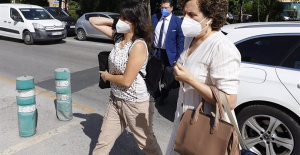 Juana Rivas's legal team manages to repeat the trial "that separated the brothers" in Italy
Juana Rivas's legal team manages to repeat the trial "that separated the brothers" in Italy The New York Justice annuls Harvey Weinstein's conviction for sexual crimes and orders a new trial
The New York Justice annuls Harvey Weinstein's conviction for sexual crimes and orders a new trial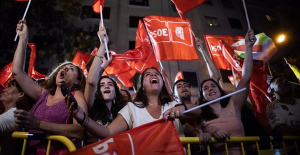 Socialist militants promote a large demonstration in support of Sánchez on Saturday in Ferraz
Socialist militants promote a large demonstration in support of Sánchez on Saturday in Ferraz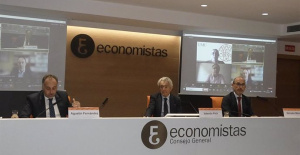 Families with average income allocate a third of their income to paying taxes, according to economists
Families with average income allocate a third of their income to paying taxes, according to economists How Blockchain in being used to shape the future
How Blockchain in being used to shape the future Not just BTC and ETH: Here Are Some More Interesting Coins Worth Focusing on
Not just BTC and ETH: Here Are Some More Interesting Coins Worth Focusing on Retrópolis brings the golden age of video games and computing to the UPV
Retrópolis brings the golden age of video games and computing to the UPV Looking for video games that value the neighborhoods of Valencia
Looking for video games that value the neighborhoods of Valencia UPV researchers improve the efficiency of air conditioning systems using a geothermal heat pump
UPV researchers improve the efficiency of air conditioning systems using a geothermal heat pump València is committed to citiverse and smart tourism to be "the reference technological hub of the Mediterranean"
València is committed to citiverse and smart tourism to be "the reference technological hub of the Mediterranean" A million people demonstrate in France against Macron's pension reform
A million people demonstrate in France against Macron's pension reform Russia launches several missiles against "critical infrastructure" in the city of Zaporizhia
Russia launches several missiles against "critical infrastructure" in the city of Zaporizhia A "procession" remembers the dead of the Calabria shipwreck as bodies continue to wash up on the shore
A "procession" remembers the dead of the Calabria shipwreck as bodies continue to wash up on the shore Prison sentences handed down for three prominent Hong Kong pro-democracy activists
Prison sentences handed down for three prominent Hong Kong pro-democracy activists ETH continues to leave trading platforms, Ethereum balance on exchanges lowest in 3 years
ETH continues to leave trading platforms, Ethereum balance on exchanges lowest in 3 years Investors invest $450 million in Consensys, Ethereum incubator now valued at $7 billion
Investors invest $450 million in Consensys, Ethereum incubator now valued at $7 billion Alchemy Integrates Ethereum L2 Product Starknet to Enhance Web3 Scalability at a Price 100x Lower Than L1 Fees
Alchemy Integrates Ethereum L2 Product Starknet to Enhance Web3 Scalability at a Price 100x Lower Than L1 Fees Mining Report: Bitcoin's Electricity Consumption Declines by 25% in Q1 2022
Mining Report: Bitcoin's Electricity Consumption Declines by 25% in Q1 2022 Oil-to-Bitcoin Mining Firm Crusoe Energy Systems Raised $505 Million
Oil-to-Bitcoin Mining Firm Crusoe Energy Systems Raised $505 Million Microbt reveals the latest Bitcoin mining rigs -- Machines produce up to 126 TH/s with custom 5nm chip design
Microbt reveals the latest Bitcoin mining rigs -- Machines produce up to 126 TH/s with custom 5nm chip design Bitcoin's Mining Difficulty Hits a Lifetime High, With More Than 90% of BTC Supply Issued
Bitcoin's Mining Difficulty Hits a Lifetime High, With More Than 90% of BTC Supply Issued The Biggest Movers are Near, EOS, and RUNE during Friday's Selloff
The Biggest Movers are Near, EOS, and RUNE during Friday's Selloff Global Markets Spooked by a Hawkish Fed and Covid, Stocks and Crypto Gain After Musk Buys Twitter
Global Markets Spooked by a Hawkish Fed and Covid, Stocks and Crypto Gain After Musk Buys Twitter Bitso to offset carbon emissions from the Trading Platform's ERC20, ETH, and BTC Transactions
Bitso to offset carbon emissions from the Trading Platform's ERC20, ETH, and BTC Transactions Draftkings Announces 2022 College Hoops NFT Selection for March Madness
Draftkings Announces 2022 College Hoops NFT Selection for March Madness



